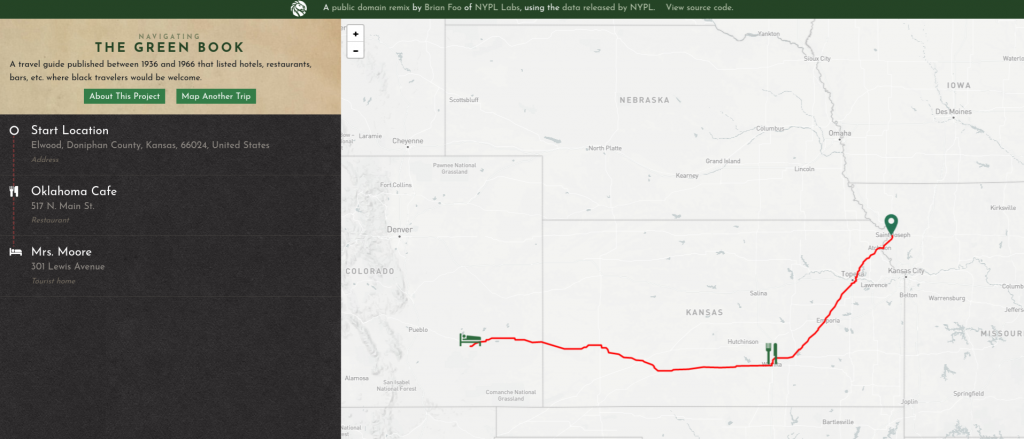The Sunflower State’s first Tour!
The Sunflower state of Kansas is an incredibly rural State set in the Mid-west. I chose this particular State because it seemed like one of the more obscure states that people wouldn’t investigate for social issues. However, just because it’s lower on the totem pole of popularity in tourism doesn’t mean it shouldn’t be examined. Whoever wants to travel there should be able to.
The first tour of Kansas focuses on the most northern cities and towns. They are all close to the border from one side to the next. All these towns are incredibly small and rural, but in the great depression– racial segregation still managed to impact these lesser known areas.

The Tour I mapped was on the top portion of Kansas, but the Green Book shows us that due to segregation someone traveling couldn’t even go on this tour. They would have to to drive all the way to Colorado just to find somewhere to sleep. Due to racial segregation Kansas’ tourism is greatly limited to who it can cater to. They could even travel to the North if they wanted to. They wouldn’t even be able to share the same experiences because racial segregation completely bars them from entering the northern part of Kansas. There is no comparison, because there is no shared experience.
The simple fact that the northern part of Kansas doesn’t have a place for African-Americans shows us through mapping history many things about that area. It is unlikely that there was a prominent African-American population. Even today there’s very little population in those areas, but there is still racial issues. It also tells us that we really haven’t changed enough. The geographical lines of the past are still evident today.
The Primary source of the American Guide Series and the Green Book shows just how small the world was for African-Americans in the Great Depression. How could the project hope to encourage tourism if only a portion of the population could comfortably travel? How could a world in economics disarray not see the full extent of their societal issues? Every generation has its paradoxes, and studying sources like this illuminates how in the future we can avoid these issues.
